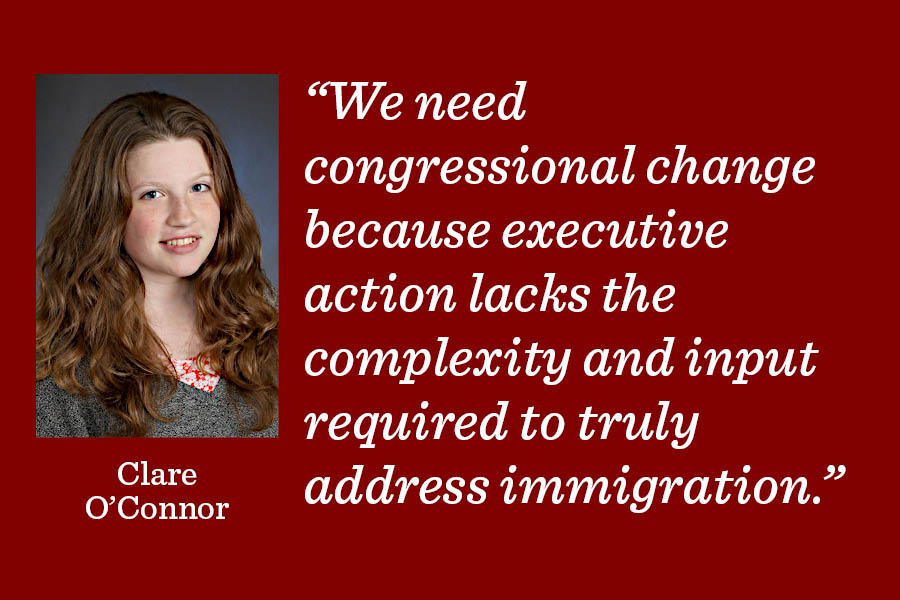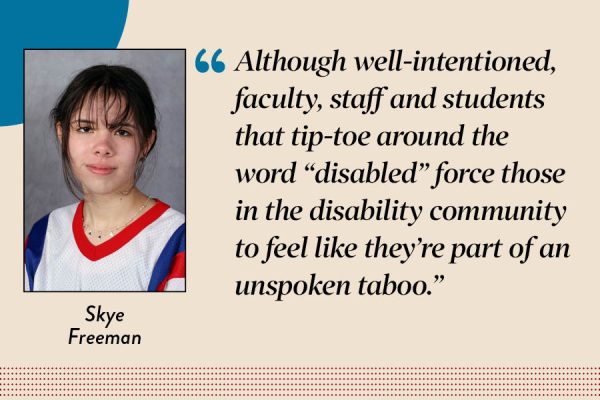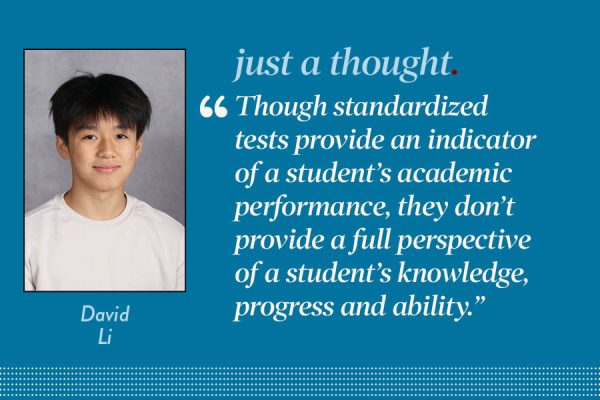Executive action is not enough for sustainable immigration reform
Midway staff
While Mr. Biden’s decision to use executive action to carry out immigration reform is designed to protect a large group of vulnerable people, the U.S. government needs to stop relying on executive directives to change immigration policy, writes Clare O’Connor.
February 17, 2021
On Inauguration Day, as notifications popped up on my computer detailing the slew of changes President Biden made on Day One, I felt relief. It was uplifting to think that so many changes I supported could become true with a simple signature. One was a pause on most deportations of undocumented immigrants for 100 days, while the new administration built plans for changing current immigration policies.
When this decision was immediately met with a lawsuit from the State of Texas, my optimistic confidence wavered. Texas Attorney General Ken Paxton claimed Mr. Biden’s order would be too expensive and breach an agreement President Trump made only weeks earlier, promising to consult Texas on any plans for immigration.
This lawsuit — just two days into President Biden’s term — illustrates perfectly the failure of the last 12 years of immigration policy and makes me worry that President Biden might continue the same mistakes as his predecessors.
While Mr. Biden’s decision to use executive action to carry out immigration reform is designed to protect a large group of vulnerable people, the U.S. government needs to stop relying on executive directives to change immigration policy. The people whose lives are affected deserve to have a comprehensive and reliable system protected by law.
We need congressional change because executive action lacks the complexity and input required to truly address immigration. Immigration is a complex topic with myriad intricacies that must be addressed by a comprehensive policy, not a succinct directive focused on a single change. Legislation, unlike executive action, would provide a detailed framework to address the many contingencies, situations and consequences. Executive actions are useful for an immediate straight-forward change, but they cannot create the systemic reform warranted by the current broken immigration system.
Executive action is admittedly easier to enact than legislation, which has to pass through both houses of Congress. In recent decades, the Republican and Democratic views on immigration have become increasingly polarized. Due to this growing divide, Congress has failed to pass laws to reform and modernize immigration policy, causing American leaders to resort to executive action. Congressional legislation is hard to pass but also hard to undo, which ensures stability for the people and businesses who rely on legal structures. Executive action is vulnerable to being challenged in court and easily changed or removed with any shift in executive leadership. For example, President Obama used executive powers to enact the Deferred Action for Childhood Arrivals policy. Later, the Trump administration tried to reverse the policy with their executive powers, leaving many “dreamers” unsure of their future. This instability continues in the Biden administration, which has already reversed Mr. Trump’s reversal. Now, real people are caught up in the legal battle as federal and state governments argue in court. Officials released thousands of incarcerated migrants without considering where they would go, while the state of Texas is working to stop these releases.
Reliance on executive action results in an incomplete, fragile policy that leaves defenseless the tens of millions of people affected by immigration law. Immigrants are real people who experience real suffering due to uncertainties of laws and legal status. Today, young people need to show our government that the current legislative stagnation on immigration does not reflect the changing values of America. Even in a Democratic state like Illinois, our congressional representatives benefit from tangible evidence that constituents want immigration reform, so they can push their own leadership to prioritize the issue. President Biden has proposed a new immigration bill that will be put before Congress. Reach out to your representatives, and tell them immigration reform is a priority to you.


















